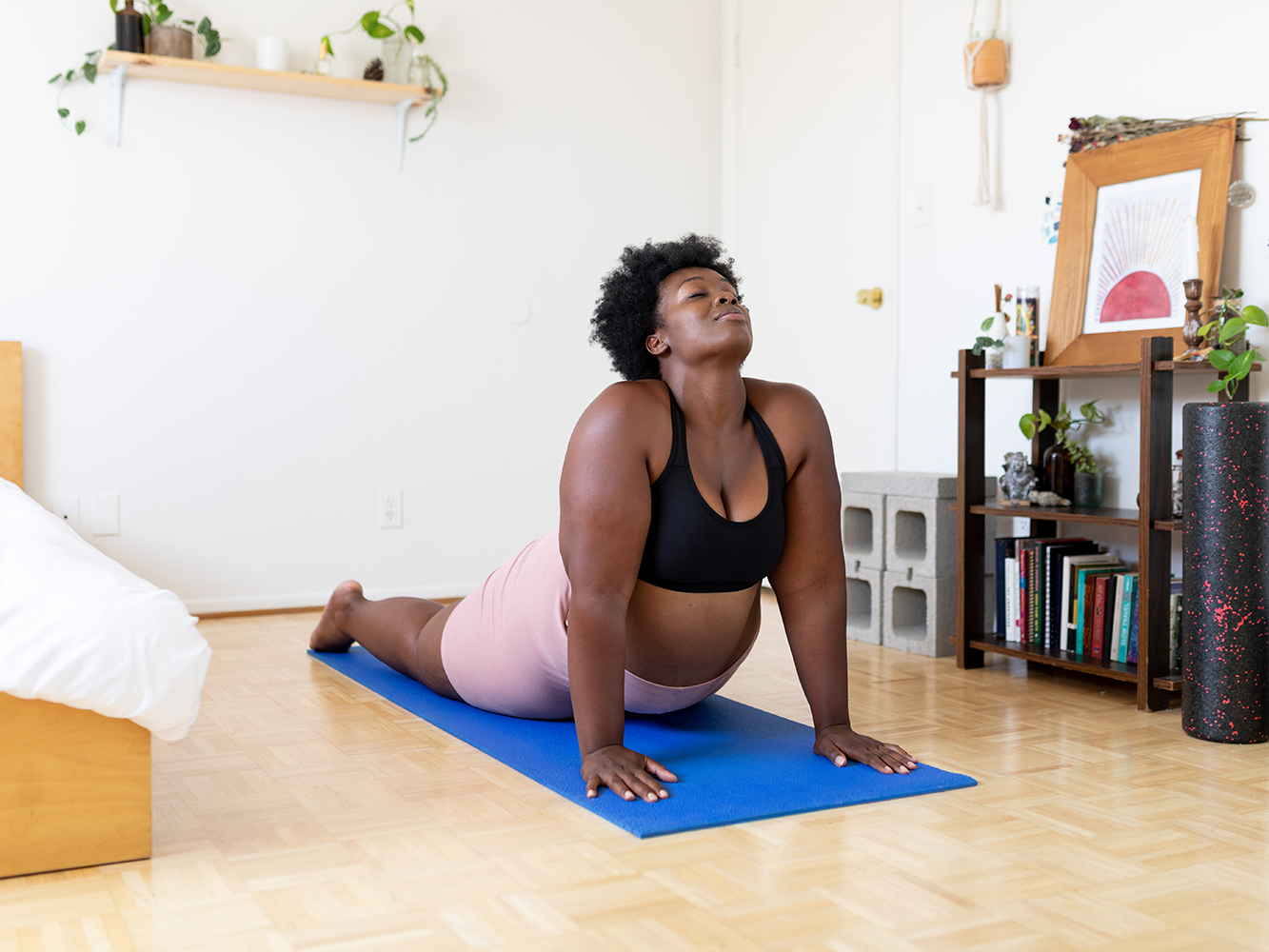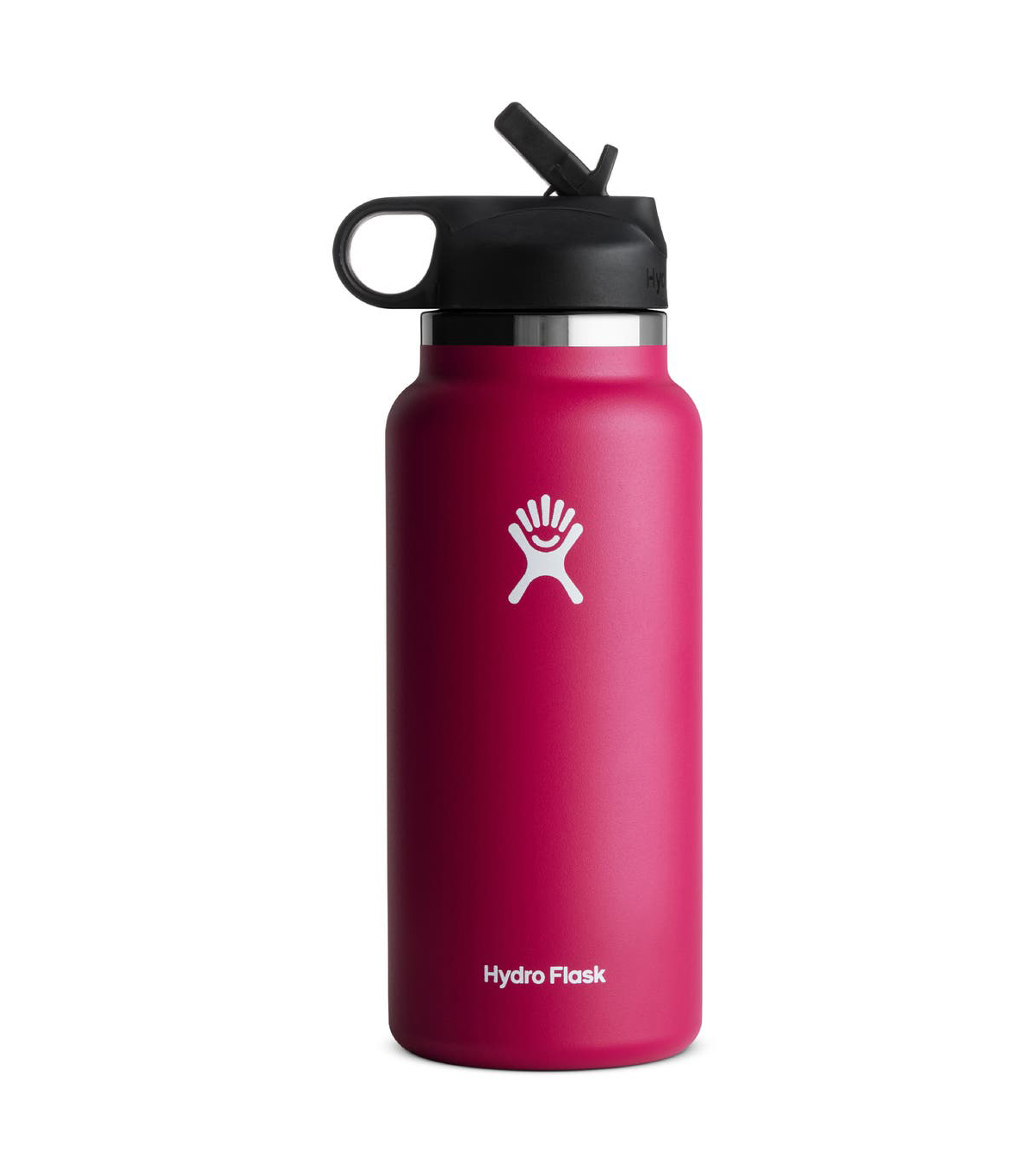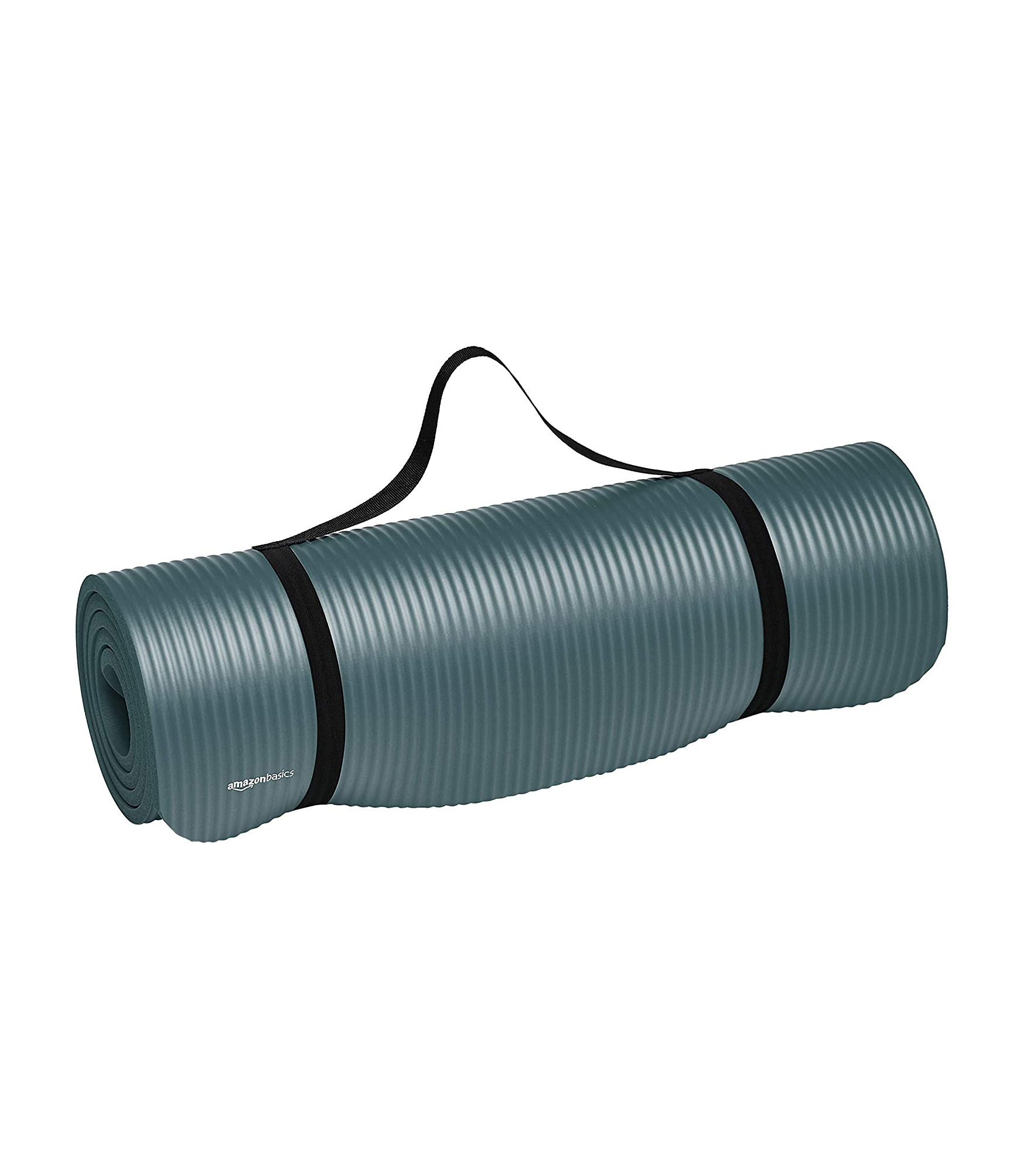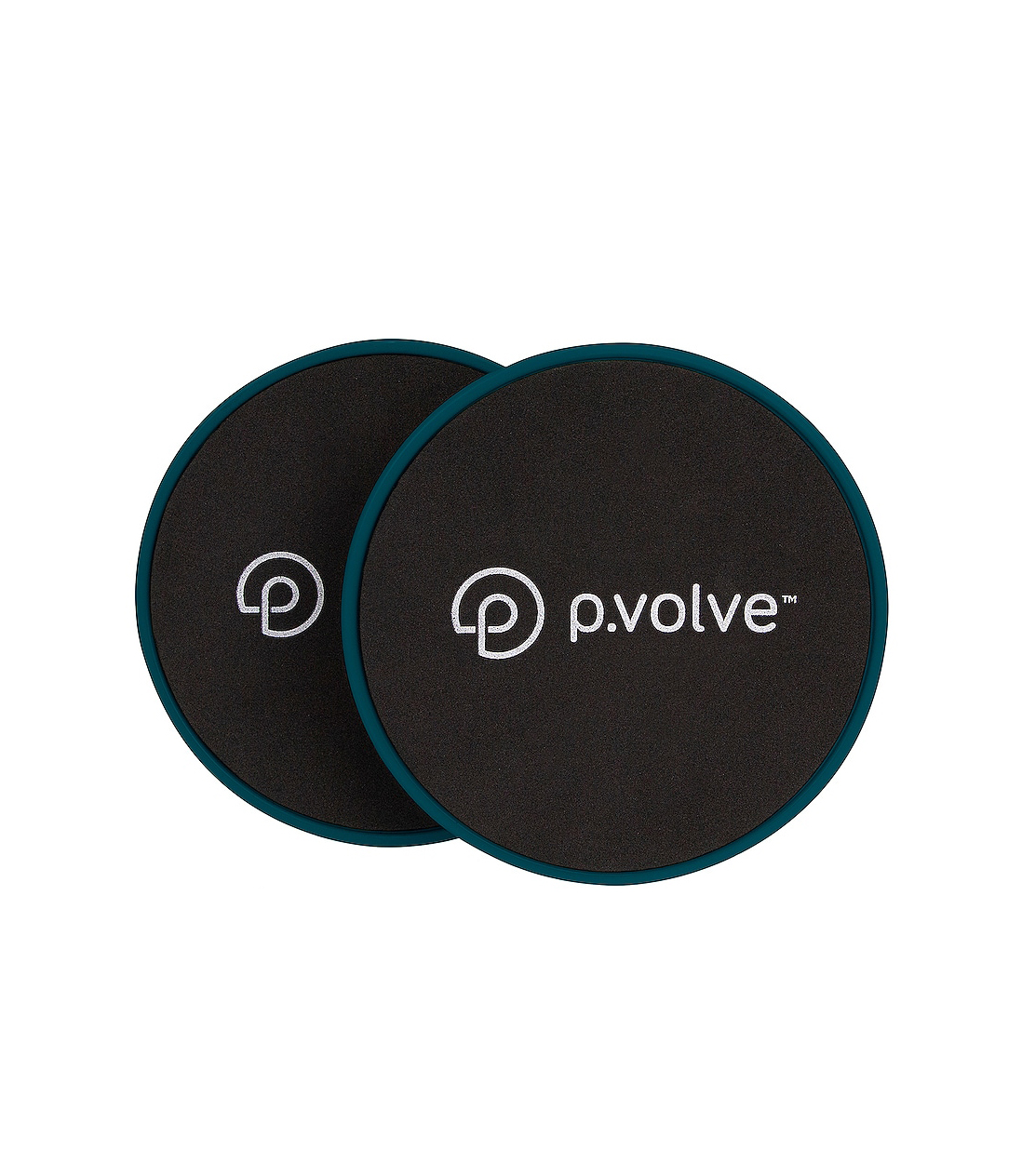12 Ways to Boost Your Energy Levels That Don't Involve a Cup of Coffee

It seems that nowadays when I talk to friends, a lack of energy is a big problem for a lot of them. Some say they think they get enough sleep but still feel so depleted during the day. Others can't go without multiple cups of coffee. And some just feel constantly fatigued. For me, I've just become used to continuously yawning throughout the day. You might also relate to any (or all) of the above.
But it got me thinking, why should we have to put up with low energy, and are there any changes that can be made to make things better? What are some ways to increase energy? Well, it turns out there are a couple of things you can try, and they don't involve upping your caffeine intake. Think a whole-body approach. But it's important to note that everybody is different—so what might help boost your energy levels might not work for someone else and vice versa.
"Sleep, diet, and lifestyle play the hugest role in energy!" says Carolyn Brown, MS, RD, co-founder of Indigo Wellness Group. "Often, people think of energy as what they get from coffee in the morning. But real energy comes from when our body is in balance. Clients are always blown away at how different they can feel in just a week or two of making food and hydration upgrades and getting on a consistent sleep schedule."
What Zaps Your Energy?

It can be helpful to know about the common energy "zappers" so you can be mindful of them. What drains your energy can vary, but there are some common ones that you might even recognize. Jeffrey Bland, Ph.D., a clinical biochemist, the president of Big Bold Health, and the founder of the Institute for Functional Medicine, says there are five things that are at the top of the list of "energy drainers": too much stress; poor sleep quality; high-calorie, low-nutritional-quality diets; disturbed digestive function; inadequate intake of B vitamins and minerals (including iron, zinc, magnesium, and potassium).
Movement can also be a factor when it comes to your energy levels. "Are you getting an amount of movement that's optimal for you? Overtraining especially can leave us feeling depleted and run-down," says Jaclyn Tolentino, DO, a senior doctor at Parsley Health. "On the other hand, lack of movement doesn't provide those key endorphins that support energy."
Ways to Increase Energy
Once you figure out what may be zapping your energy, you can start to make a game plan. It may take some time to get back on track and feel and see the changes, but it starts with just that—making some changes to your regular routine. "I often tell my patients, 'You can't pour from an empty cup,'" says Tolentino. "Overextending ourselves without allowing for proper self-care—like taking the time to get restful sleep, adequate nourishment, effective stress management—can take a major toll on our own unique perception of our energy level."
The experts shared some ways that you can make adjustments to your life to boost your energy levels—this isn't an exhaustive list, but you can start here. And you'll want to chat with your doctor or another healthcare professional about your options as well since they know your health history and can make specific recommendations.
But it's all about creating a personal plan that works for you. "Managing a high-energy lifestyle requires focus on a personal plan," Bland says. "It doesn't happen without conscious intention. In the absence of a plan, the pressures of daily life can rob us of our energy. People who have successfully enjoyed a long-term, high-energy lifestyle for themselves have invested themselves in the management of their personal lifestyle plan with adequate rest, exercise, proper eating, social connections that build energy, commitment to practicing proper sleep habits, and prioritization of activities to build resilience and stamina."
1. Improve Your Sleep Hygiene

"Resetting your sleep routine may be beneficial to getting quality sleep that can improve your energy levels," says Kim Rose, RDN, CDCES, CNSC. "For example, if you have a hard time falling asleep, try limiting exposure to blue light from electronic devices before bed. Additionally, set the stage for a good night's rest by not bringing work to bed; setting the thermostat so you're not too hot nor too cold; sleeping on a comfortable bed; and using earplugs at night."
Sleep hygiene also includes getting yourself on a sleep schedule, Brown says. So in addition to limiting your blue-light exposure before bed, you'll want to try to get up around the same time every morning.
2. Take Inventory

Before making any diet or lifestyle changes, Tolentino recommends taking inventory and asking yourself some questions. That includes paying attention to how you feel after your meals or workouts. Do you feel energized or exhausted? You can also ask yourself if you're hungry 30 minutes after eating or experiencing a hard crash—those can be indications you might need to change up your diet. "Examining how we feel after we move or nourish our bodies can help us to fine-tune our routine—maybe your diet needs some adjustments. Maybe the time of day you're working out isn't optimal for your particular lifestyle," she says. "Taking an inventory can help us determine what's working and what's not."
3. Take a Look at What You Eat

Take a look at your eating habits and at what you're eating. "Are you eating enough to fuel your activity level? Even a very carefully planned diet won't be enough to power you through an eventful day if you're not getting enough food that’s rich in nutrients to fuel your daily activities," Tolentino says. "Are you eating the types of foods that can provide you with continuous, stable energy—foods that can help you avoid the dreaded 'afternoon crash'? Personal diets may vary, but generally, we're looking for foods high in healthy fats, lean proteins, whole grain, and plenty of fiber."
Make sure you're adding in those leafy greens—Brown suggests getting them and other veggies in at least two times a day. "Veggies are full of energy vitamins and minerals," she says. "If you're traveling or in a busy season of life, I love an organic greens powder to supplement your meals with extra energy nutrients."
You'll also want to be on an eating schedule that is optimized for energy. "Are you eating at the appropriate times? This can vary widely depending on your lifestyle, but often, we're looking for consistency," Tolentino explains. "Are you eating at similar times every day? Are those times functioning synergistically with the time you typically wake up, start your daily routine, exercise, go to sleep, etc.?"
And be careful with those sodas and energy drinks that are supposed to perk you up. "The amount of sugar in these beverages gives you a temporary high then leaves you drained," Rose says. "For this reason, one should limit their reliance on these types of beverages for energy."
4. Drink More Water

Brown suggests having a "wake-up water," which is drinking 16 ounces of water the very first thing in the morning. "Hydration is a huge part of energy and often the missing link for people," she says.
5. Avoid Certain Foods

"Avoid fatty, greasy meals right before bed. These meals may cause heartburn and interfere with your rest," Rose says. "And limit fluids at least two hours before bed so you don't wake up in the middle of the night to urinate."
6. Try Adding Supplements

There are some herbs and supplements that can boost your energy levels, but you'll want to check with your doctor first before adding anything new to your routine. That being said, Tolentino says that some supplements she discusses with her patients include vitamin D, which plays an important role in immune and bone health, hormone regulation, and mood and which we often don't get enough of through diet alone; vitamin B12, which is important to maintaining healthy nerve tissue and red blood cell production and a deficiency in it could lead to symptoms like fatigue; and vitamin C, which is a powerful antioxidant that is known for its ability to support the immune system while fueling our cells with energy.
As for herbs and adaptogens, some that can help on the energy front include Rhodiola, cordyceps, ginseng, maca, licorice, ashwagandha, turmeric, and astragalus. "Does a morning smoothie jump-start your energy for the day ahead? Try adding some Himalayan Tartary Buckwheat (HTB) to your routine and see what happens!" Bland suggests. "HTB is a special type of buckwheat that originated thousands of years ago in the rugged and mountainous terrain of Asia. It almost completely disappeared from the Western diet, but now it's comeback time. Simply put, HTB is redefining 'superfood.' It's packed with a unique portfolio of immune-active phytonutrients, plus it’s rich in protein, prebiotic fiber, and key vitamins and minerals."
7. Get Outside

"Sunshine is so important for natural energy, and ideally, getting this in in the morning is incredibly helpful," Brown says. She recommends getting at least 10 to 15 minutes in the sun and as close to when you wake up as possible. Just don't forget the sunscreen! And for a bigger reset, get out to a park, the beach, or the mountains.
8. Get Moving

Incorporating movement into your day will help, too. "This doesn't have to look like an intense boot camp or spin class—although, getting your heart pumping and expending energy does give a quick energy boost!" Brown says. "But even gentle movement like a walk, dancing or shaking it out to one song, or a quick yoga flow can increase energy too."
9. Improve Your Posture

"Standing up straight increases blood flow and oxygenation to your whole body, while being slumped over a computer screen cuts off deep breaths and blood flow!" Brown says. "If you are slumped over your computer most of the day, try taking walking or standing calls. I have all of my clients take me for a walk."
10. Be Aware of Stressors

Stress can zap your energy, so it's helpful to know what can trigger it. You might not be able to get rid of all the stress in your life, but at least you might be able to alleviate some of it. Tolentino suggests starting with awareness and asking yourself what aspects of your life are major stress triggers and think about how you can more effectively manage them.
11. Develop Some Strategies to Cope With Stress

Once you figure out your stressors and what causes them, you can put into action some coping mechanisms and strategies. "What mind-body strategies can we use to mitigate some of those stressors?" Tolentino says. "The best tools are going to be things you can utilize consistently and easily incorporate into your life—whether that's some type of movement, breathing exercises, or regular meditation practice. The best strategies are things you can utilize consistently—if meditation isn't working for you, and you're having a hard time incorporating it into your daily routine, maybe it's not the right intervention for you. Maybe you need something active—like a reflective five- or 10-minute walk or a break to engage in some type of deliberate movements like yoga or Qi Gong. You have to personalize this to your particular lifestyle, your needs, and what feels nourishing to you."
You'll also want to delegate things if you can and set some boundaries. "Setting boundaries frees you of unrealistic expectations that can threaten your mental wellness," Rose says. "Seeking the help of a mental health expert can equip you with coping skills and strategies you need to adapt in everyday situations."
12. Turn Off Social Media

"Take a social media break. When we're not at our best, comparing ourselves to what we see online can only make things feel more depleted," Brown says. "Turn off the phone whenever you can—it is so freeing!"
Next, 10 Things That Can Mess With Your Sleep—and What to Do About It
This article is provided for informational purposes only and is not intended to be used in the place of advice of your physician or other medical professionals. You should always consult with your doctor or healthcare provider first with any health-related questions.
Sarah is lifestyle writer and editor with over 10 years of experience covering health and wellness, interior design, food, beauty, and tech. Born and raised in Los Angeles, she attended New York University and lived in New York for 12 years before returning to L.A. in 2019. In addition to her work atBest Knockoff Luxury Clothing , she held editor roles at Apartment Therapy, Real Simple, House Beautiful, Elle Decor, and The Bump (sister site of The Knot). She has a passion for health and wellness, but she especially loves writing about mental health. Her self-care routine consists of five things: a good workout, “me” time on the regular, an intriguing book/podcast/playlist to unwind after a long day, naps, and decorating her home.











